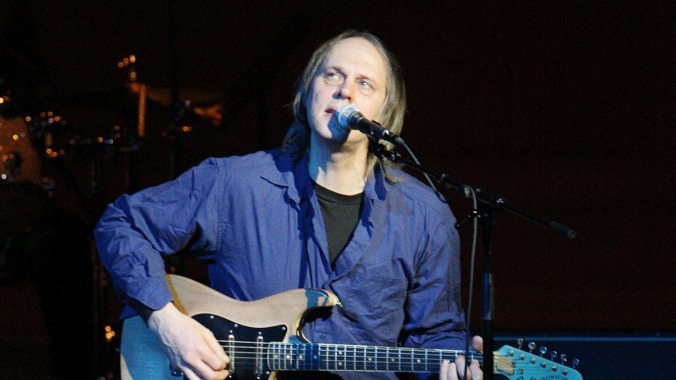R.I.P. Tom Verlaine, guitarist, singer, and co-founder of influential band Television
Verlaine's poetic lyrics and clear, hook-heavy guitar work helped place Television at the heart of the rising punk scene

Tom Verlaine has died. As the singer, songwriter, and guitar player for influential New York band Television, Verlaine shaped the sound of rock and punk music in the 1970s and beyond, applying a poetic flair (and serious musicianship) to the rougher edges of the wider movement. After Television broke up in 1978, Verlaine embarked on an extensive solo career that saw him release ten albums across the ensuing decades, exploring a variety of musical themes that generally get tossed together under the label “post-punk.” Per Variety, Verlaine died on Saturday after what’s been reported as a “brief illness.” He was 73.
Born in New Jersey (as Thomas Miller) and raised in Delaware, Verlaine started playing music as a kid, forming an early interest in both jazz and rock. While in school, Verlaine met Richard Meyers—later far better known to punk fans by his stage name, Richard Hell—and the two ultimately ran away from school together, eventually ending up in New York, where they formed, with drummer Billy Ficca, The Neon Boys. The band quickly became Television after the addition of second guitarist Richard Lloyd. Regular appearances at New York’s CBGB club placed Television at the heart of New York’s rising punk scene; although Hell departed in 1975 (allegedly over songwriting conflicts with Verlaine), the band continued to establish itself musically—with Verlaine’s clear, undistorted guitar and poetic lyrics front and center. (This is also the period where Verlaine struck up a long collaboration—occasionally romantic—with Patti Smith; the two would continue to work together well into the 2000s.)
Television ascended even higher when—after years of Verlaine holding out on record deals in hopes of producing his own music—the band released its first album, Marquee Moon, on Elektra in 1977. One of the most critically heralded punk/post-punk albums of all time, Moon incorporated elements of psychedelia and prog rock into the punk sound, and demonstrated Verlaine and Lloyd’s well-rehearsed partnership on the guitar, trading off rising, twanging solos with apparent ease. (If the album’s guitars sound automatically familiar now, it’s because a huge swathe of modern guitarists are operating, consciously or not, in its shadow.) 46 years later, Marquee Moon still regularly appears on “Greatest Albums Of All Time” lists, including Rolling Stone’s, where it landed at 128th back in 2003. A follow-up, 1978's Adventure, drove more strong (if slightly more muted) reviews, even if Television never reaped similar success in the commercial sphere. Verlaine’s lyrics came in for especial praise, with critics pointing out his use of humor and veiled metaphor to capture the experience of youth.
In 1978, under strain from creative differences (and, as noted by Lloyd in the seminal punk oral history Please Kill Me, a wave of more commercially viable imitators) Television broke up. (They’d reunite again in 1992 for a self-titled album, and then periodically again throughout the ensuing decades; Verlaine officially remained a member of the band until his death.) Meanwhile, Verlaine embarked on a long and fruitful solo career, starting with, fittingly, Tom Verlaine in 1979. (A cover of one of the album’s songs, “Kingdom Come,” ended up on David Bowie’s Scary Monsters (And Super Creeps) the next year, although Bowie ultimately decided against having Verlaine play on the track.) Over the years, Verlaine continued his exploration of his own guitar style, and, while never the high-speed shredder of some of his contemporaries, his understanding of the instrument’s sound remained unparalleled. Several of his later albums (including his final one, 2006's Around) were entirely instrumentals, solely focused on the guitar (Although Songs And Other Things, also from that year, revealed that he was still in fine voice and lyrical mindset.)
Verlaine’s death was confirmed to The New York Times today by Patti Smith’s daughter, Jesse Paris Smith.